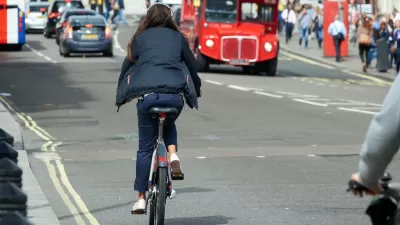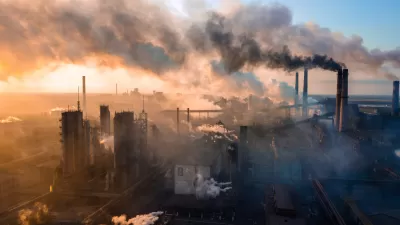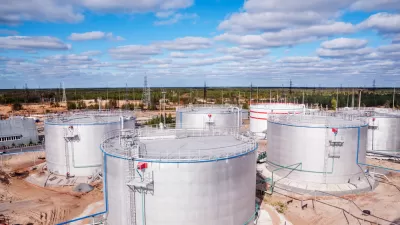An impending lift of the ban on women cyclists could generate investment in much-needed biking infrastructure in Saudi Arabia.
Saudi Arabia has little to no biking infrastructure. Also lacking public transportation options, its cities are heavily dependent on transport by car. The only people seen biking are migrant workers and children in parks, surmises Sana Venjara based on interviews with Westerners living in the country.
But a new unlikely demographic is about to join the biking ranks: Saudi Arabia will be allowing women -- who cannot drive -- to bike for recreational purposes as long as they wear an abaya to cover their bodies completely and have male accompaniment.
Venjara thinks this move signals an intent to expand biking infrastructure, currently limited to places like the Wadi Hanifah, a wetlands park in the middle of Riyadh that was cleaned up and restored over the last decade and received the 2010 Aga Khan Award for Architecture.
FULL STORY: Ending ban on women cyclists can lead to a more bike-friendly Saudi Arabia

Trump Administration Could Effectively End Housing Voucher Program
Federal officials are eyeing major cuts to the Section 8 program that helps millions of low-income households pay rent.

Planetizen Federal Action Tracker
A weekly monitor of how Trump’s orders and actions are impacting planners and planning in America.

Ken Jennings Launches Transit Web Series
The Jeopardy champ wants you to ride public transit.

Rebuilding Smarter: How LA County Is Guiding Fire-Ravaged Communities Toward Resilience
Los Angeles County is leading a coordinated effort to help fire-impacted communities rebuild with resilience by providing recovery resources, promoting fire-wise design, and aligning reconstruction with broader sustainability and climate goals.

When Borders Blur: Regional Collaboration in Action
As regional challenges outgrow city boundaries, “When Borders Blur” explores how cross-jurisdictional collaboration can drive smarter, more resilient urban planning, sharing real-world lessons from thriving partnerships across North America.

Philadelphia Is Expanding its Network of Roundabouts
Roundabouts are widely shown to decrease traffic speed, reduce congestion, and improve efficiency.
Urban Design for Planners 1: Software Tools
This six-course series explores essential urban design concepts using open source software and equips planners with the tools they need to participate fully in the urban design process.
Planning for Universal Design
Learn the tools for implementing Universal Design in planning regulations.
Ada County Highway District
Clanton & Associates, Inc.
Jessamine County Fiscal Court
Institute for Housing and Urban Development Studies (IHS)
City of Grandview
Harvard GSD Executive Education
Toledo-Lucas County Plan Commissions
Salt Lake City
NYU Wagner Graduate School of Public Service





























